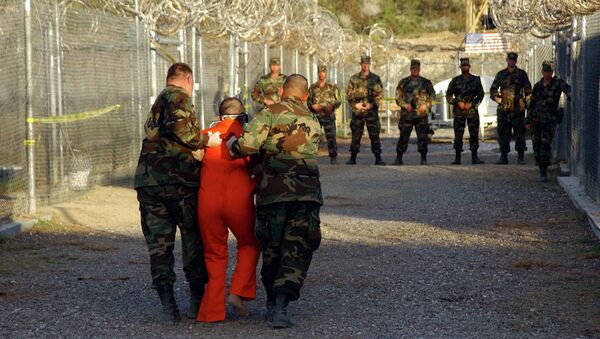In a new interview with Vice News, Hickman describes that night, carefully laying out the facts as he saw them.
“They would have had to all three tie their hands and feet together, shove rags down their throats, put a mask over their face, made a noose, hung it from the ceiling on the side of the cellblock, jumped into the noose and hung themselves simultaneously,” Hickman says.
Hickman has researched that night for years since he left the army, and his new book, “Murder at Camp Delta,” details his investigation.
“I was trying to put Guantanamo behind me,” he said. “I didn’t want to remember it. It was like a bad dream I was trying to put in the past.”
The three detainees – Salah Ahmed Al-Salami, 37, Mani Shaman Al-Utaybi, 30, and Yasser Talal Al-Zahrani, 22 – were never charged with a crime.
Hickman believes the detainees were killed because of their frequent hunger strikes, which provoked other inmates to do the same.
“They had a policy that if a detainee is hunger-striking, he cannot be interrogated,” Hickman said. “In 2006, they were doing roughly 200 interrogations a week, so any massive hunger-strike would, what they consider, cripple the intelligence value.”
Hickman’s claims first appeared in Harper’s Magazine in 2010 and were heavily criticized by the establishment. Detaining people without charge – something Guantanamo inarguably did – is considered illegal under international human rights law, and with recent revelations from the Senate Intelligence Committees torture report, Hickman’s claim may very well warrant a second look.

